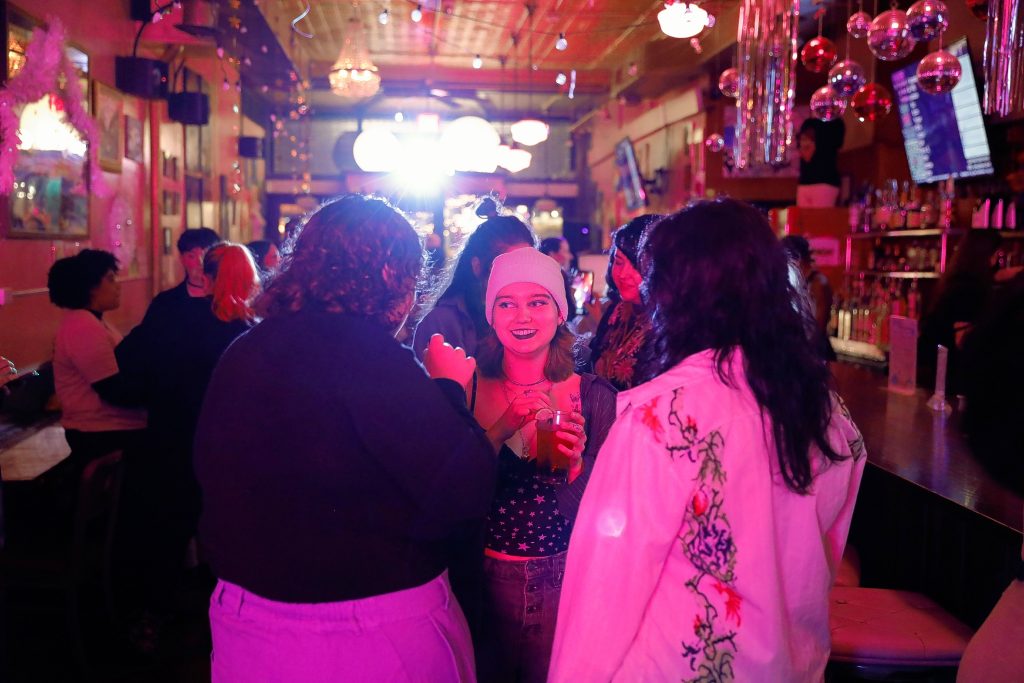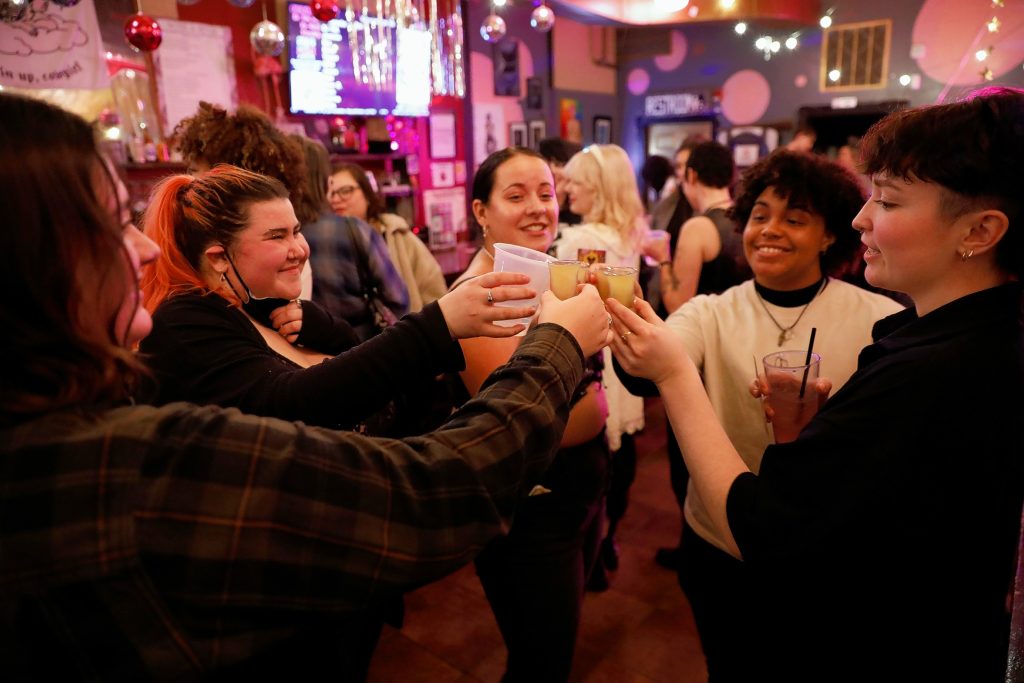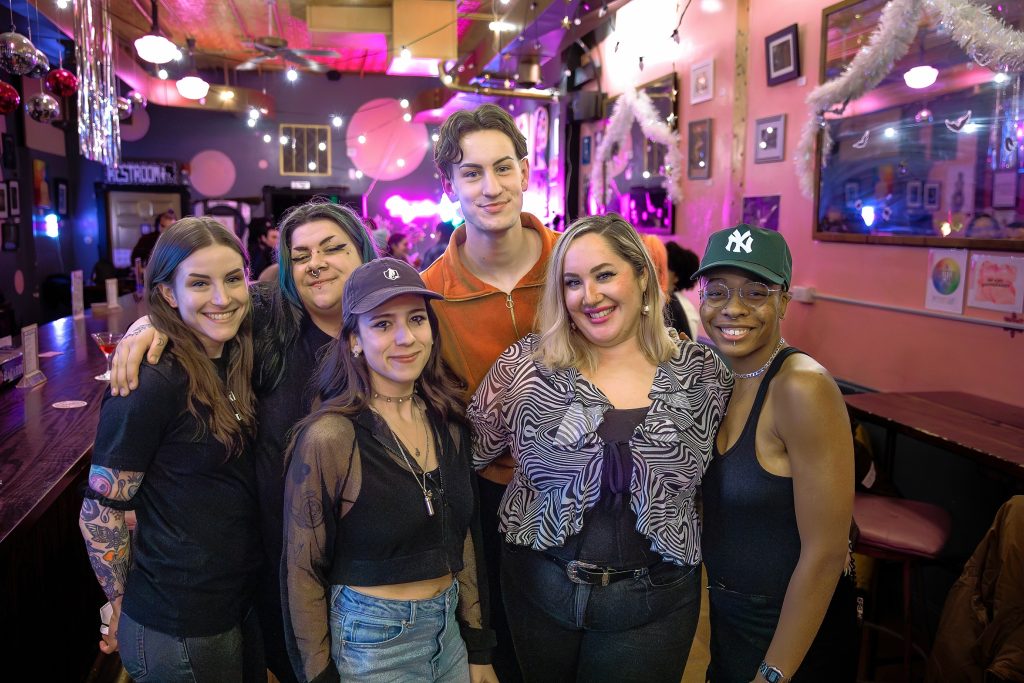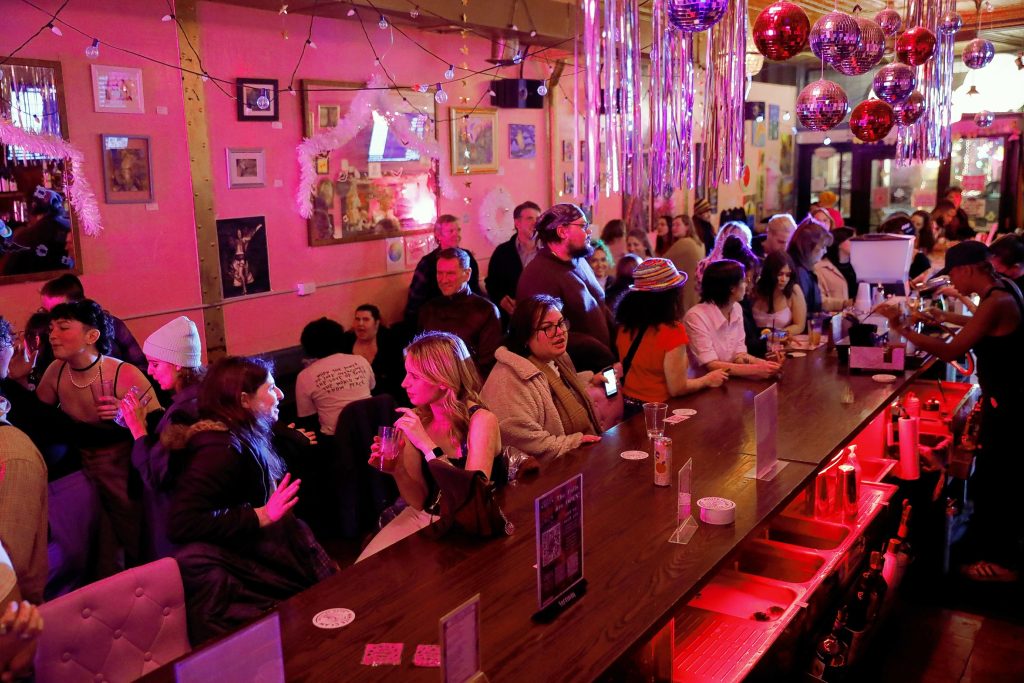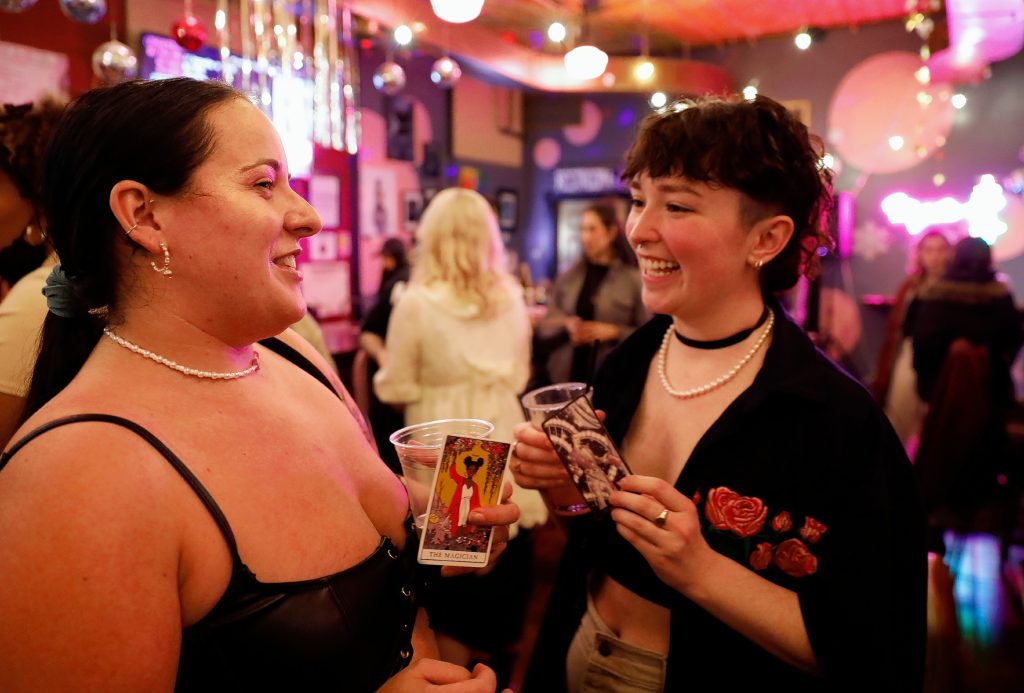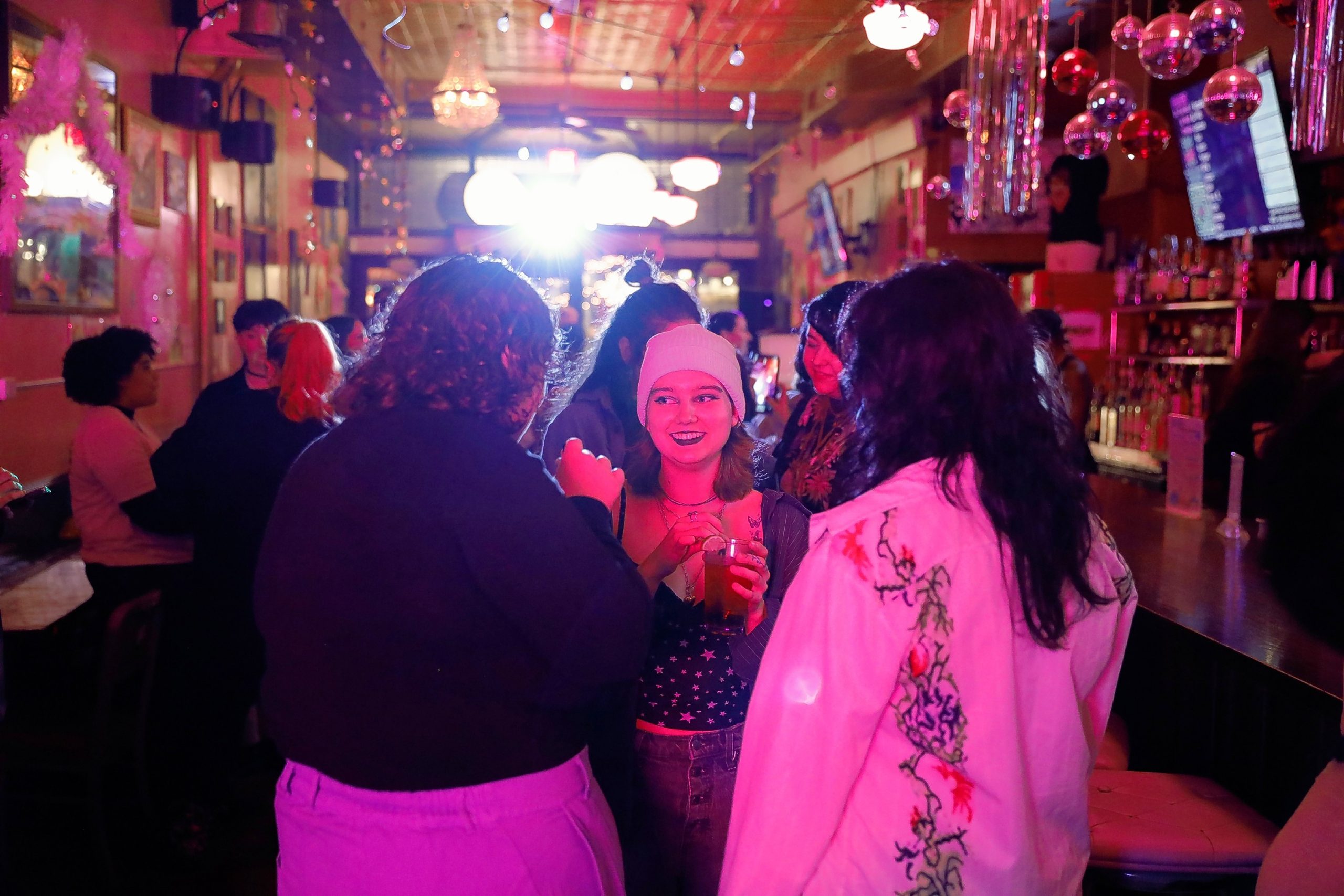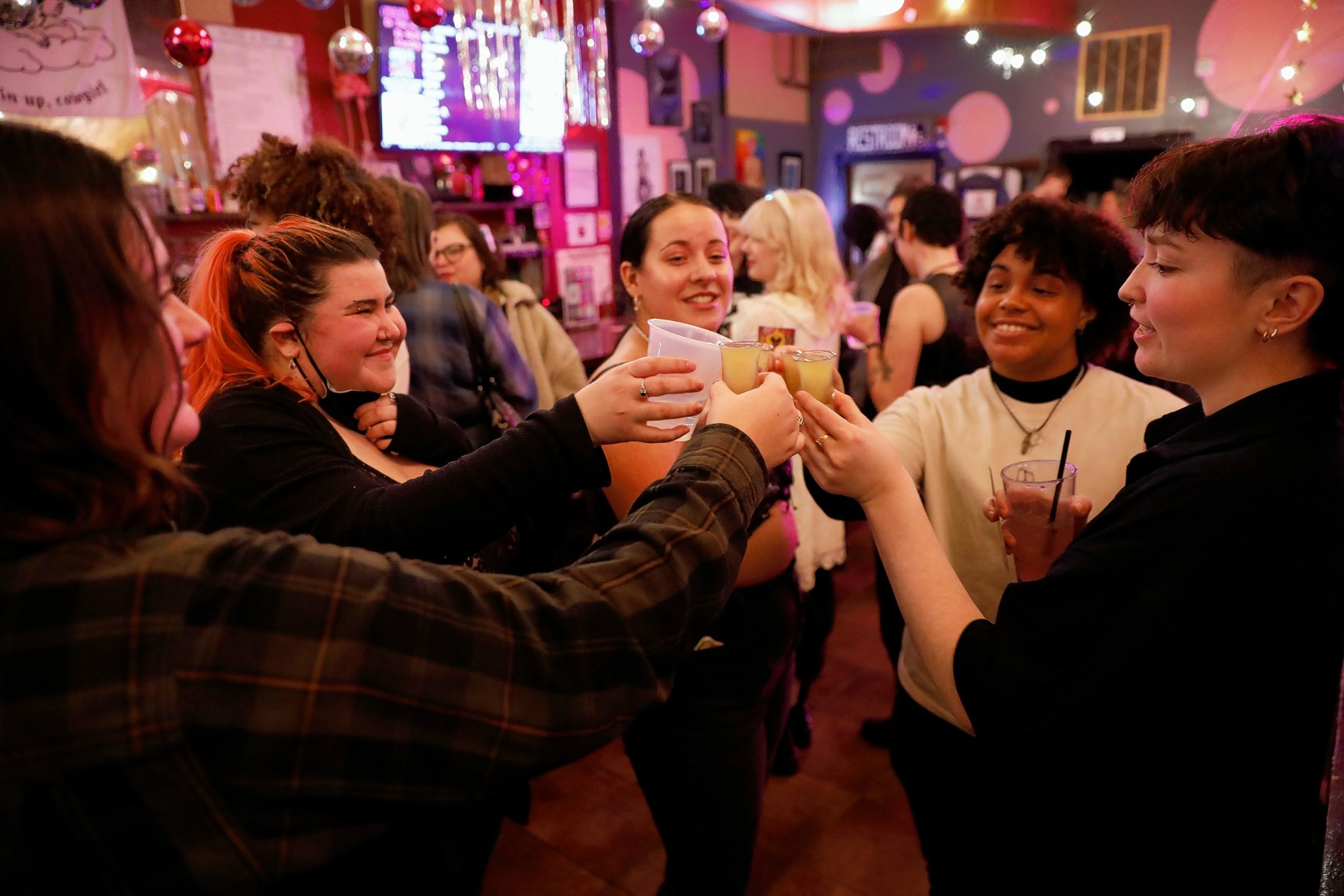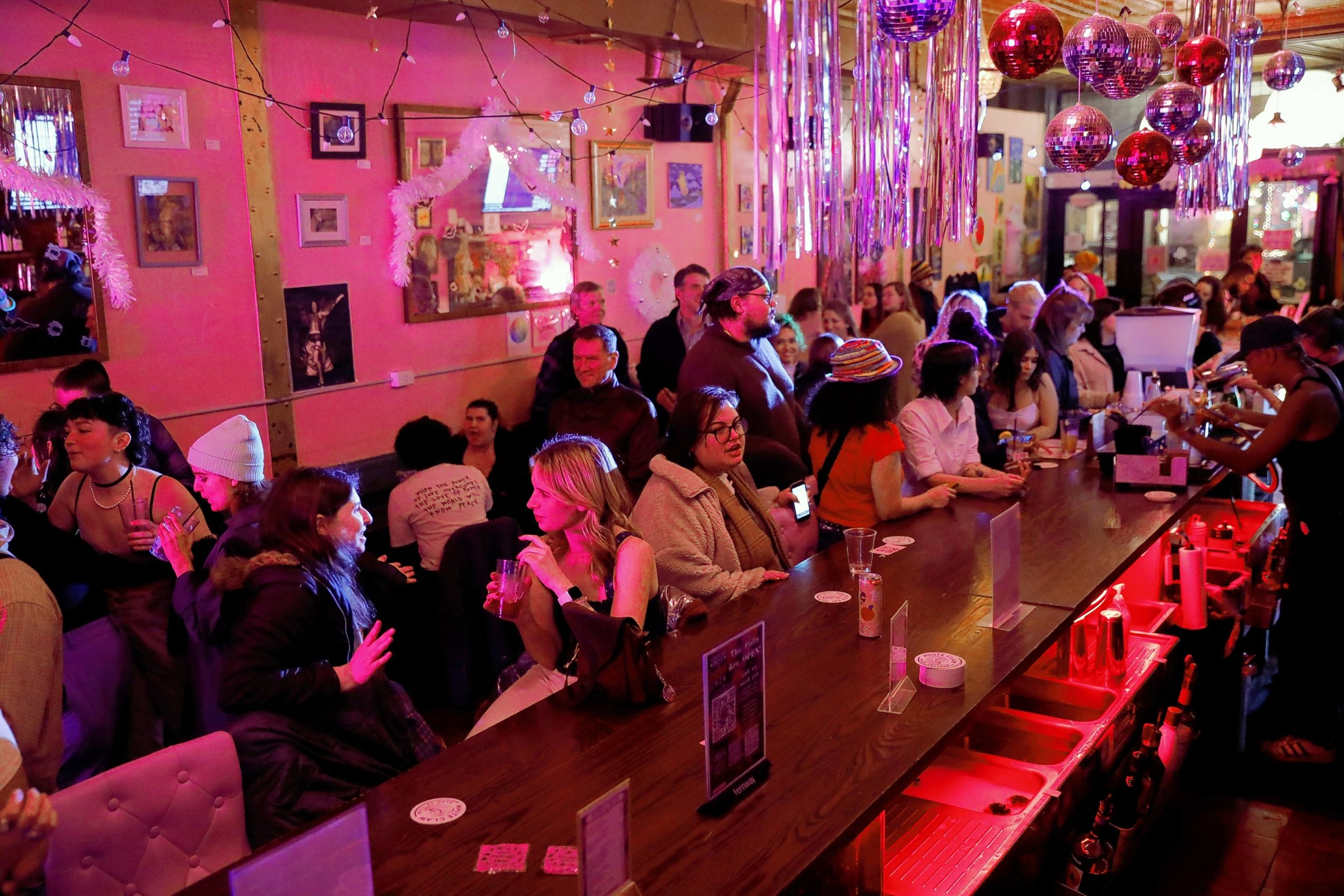By KATE LAUGHLIN and GRACE XU
For the Advocate
Walking into the Majestic Saloon in Northampton feels like a breath of fresh, albeit heavily perfumed, air. The pink and purple lighting with a constant loop of popular drag queens Trixie and Katya on the TV signals that it’s a space where outcasts of all kinds are welcome. At the Majestic, the vigilance and skepticism of daily life for queer people melts away with the sound of someone singing Shakira at their Friday night karaoke.
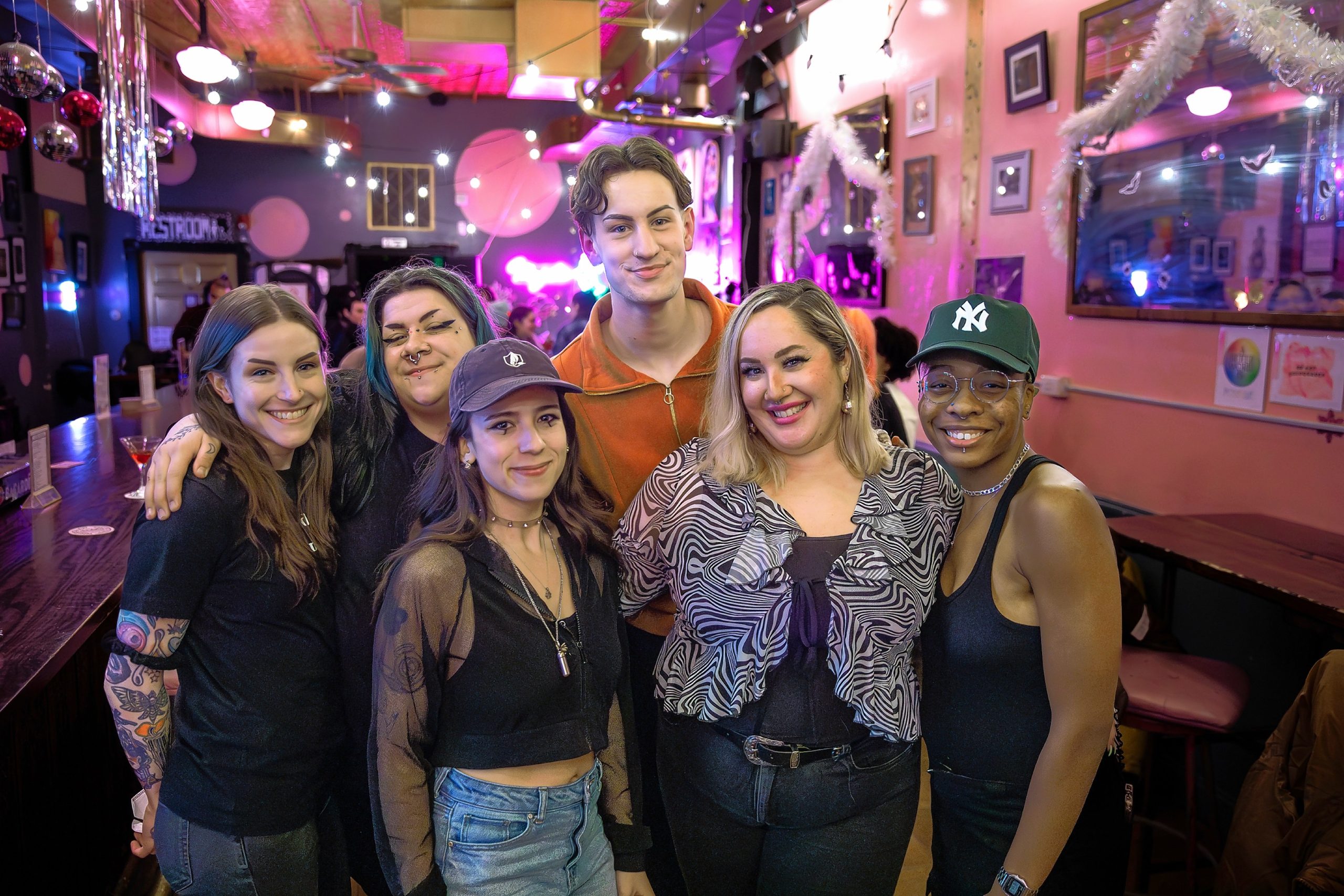
STAFF PHOTO/DAN LITTLE
The crew at Majestic, from left, Alex Noonan, Yas Rosser, Marisah Helems (DJ PRL), Alden Peotter, co-owner Kayla Abney and Aaliyah Bell on a Friday night in Northampton.
“There is always a queer bar in town, and now it is Majestic Saloon,” says Phil Peake, one of the bar’s co-owners, and a professor of psychology at Smith College.
Northampton was dubbed “Lesbianville, USA” by the National Enquirer in 1992 and has a rich history of queer spaces. However, across the country, queer spaces are disappearing. In the U.S. there are 45% fewer LGBTQ+ bars in 2023 than there were in 2002.
The pandemic hurt queer bars across the country, but these spaces have been declining for decades, with people crediting online dating apps like Tinder and Grindr with the decline of physical gathering spaces. The current situation begs the question: How does Northampton only have one overtly gay bar?
“I’ve been kind of disappointed that the Majestic seems to be the only queer space in Northampton,” said Gillian Terry, a queer 21-year-old senior at Smith College who works in downtown Northampton. “You can put a few storefronts with rainbows around but that’s not what Northampton is or western Mass.”
With fewer and fewer queer spaces, it may be more difficult to see Northampton as the lesbian mecca it was once hailed to be.
Kayla Manzi, a bartender at the Majestic Saloon who grew up in western Massachusetts, used to frequent Divas, a staple in Northampton’s queer community that opened in 2001. The closure of the bar in 2016, Manzi said, “left a hole in the community.”
Before the Majestic or Divas, Northampton’s first LGBTQ+ bar was introduced in 1987 and was a lesbian-owned-and-run bar called The North Star. The North Star had an 8-year run, then was sold and converted into The Grotto in 1996. The Grotto closed in 2002 just after Divas opened in 2001; in Northampton’s history of queer bars, when one titan falls, another is born.
To date, Divas was Northampton’s longest surviving queer bar, and thrived for 15 years before its closure.
“In the ’70s, downtown was a depressed place. People moved from New York, and businesses were revitalized downtown,” said Dylan Gaffney, the information services associate for Local History & Special Collections at Forbes Library, and a Northampton native.
Gaffney also noted how Northampton is a victim of its own success. “There were so many people that the cost of living went up and people got priced out.”
Even though a bar like Divas was beloved and wildly popular in the community, the owners couldn’t afford to keep the doors open. Manzi argues that a bar’s success depends on their liquor sales, and at Divas, “people weren’t ordering enough.”
Manzi also mentioned that the queer dating scene often dictates the success of gay bars. She described differences in dating culture that she said generally lead to more spaces for queer men than queer women: “Women look for a partner, men look to hook up.”
It is “very important to have a feminine, non-binary space in Northampton,” Manzi said. The queer population in Northampton is traditionally predominantly women, so it’s important that there are spaces that cater to the interests of queer women and non-binary people.
As a member of the Northampton lesbian community for more than 30 years, Justina Golden said she feels that it is more stressful for her to enter a bar because of her female identity than her queer identity.
Terry described that going out to straight bars and clubs in Northampton is, “more of a stressful night for me, and I consider what I wear. But once I go through the doors of the Majestic, I know I’m in a good space and I don’t have to watch my back as much.”
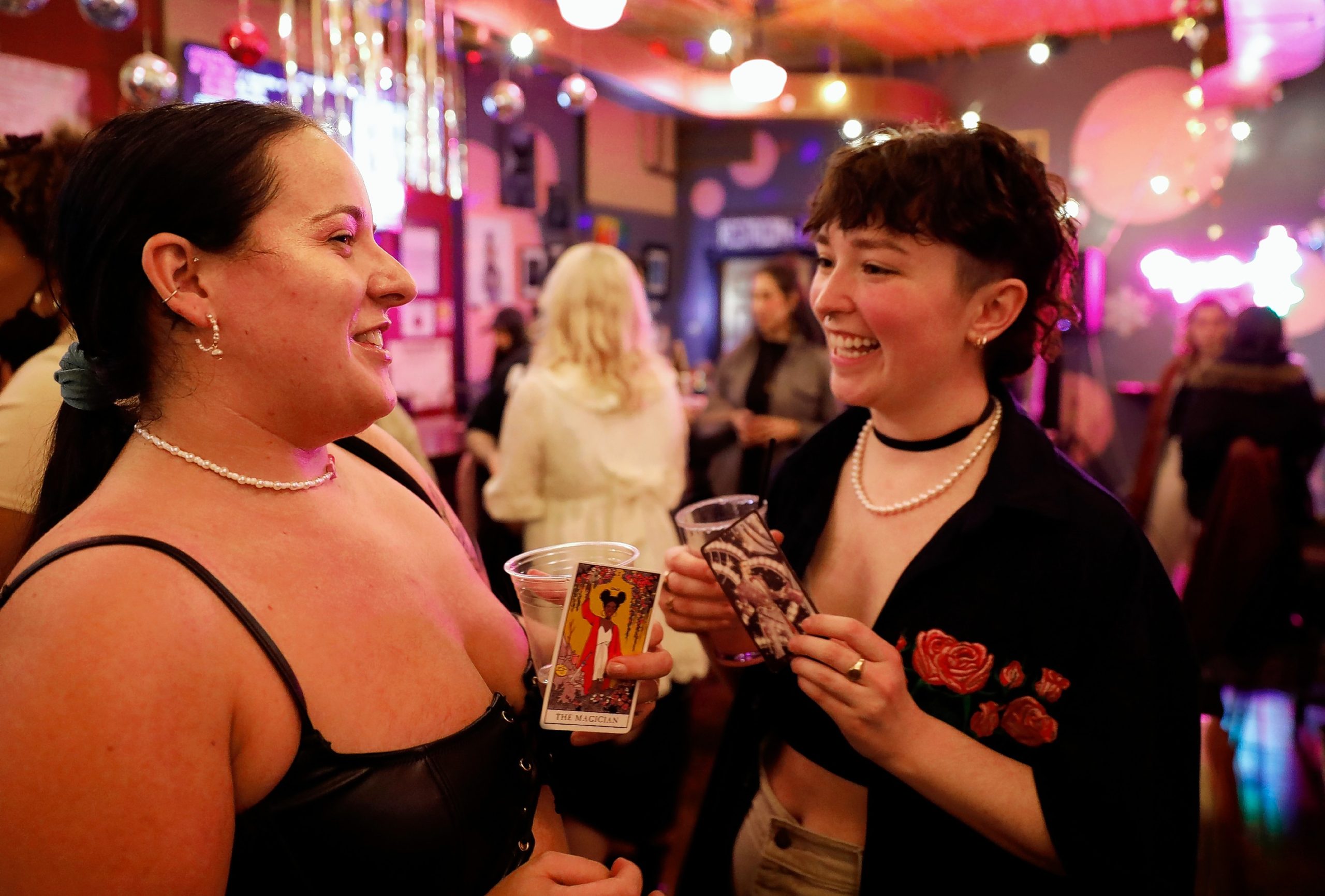
STAFF PHOTO/DAN LITTLE
Mallory Bauer, left, and Hope Wampler converse after being matched with their tarot cards that were given out during the Sapphic Social event at the Majestic Saloon in Northampton.
Not everyone wants to brave a night out on the town going to bars. Golden says she has a lot of memories about other women-only queer spaces in town. Northampton’s Lesbian Music Festival, which took place in the early 1990s, was one of her favorite events.
Golden also loved to have a cup of coffee in women-only cafes and to visit the Lesbian Gardens, which the New England Gay Guide of 1976 described as a “multi-purpose women’s community center,” formerly located at 200 Main St.
The lesbian book stores that once existed on Green St. and in the town’s center also factor heavily in community members’ memories. Cecelia Lang, who just turned 70, notes that the lesbian bookstore, Womonfyre Books, provided her with initial guidance to connect with local queer people when she moved to Northampton in 1984. Lang would look at the queer event calendar and hang out in the store to get inspiration and connect with others.
However, Lang confessed that, given the opportunity, she would still go out late dancing with the local college kids. “I’m still young at heart.”
For people that want to go out dancing like Lang, they’ll find that there aren’t many places to go, especially with the temporary closure of the Iron Horse and The Pearl Street Night Club. While these aren’t explicitly queer spaces, the Iron Horse was located next to Womonfyre Books and often collaborated with them and queer musicians to host shows, while The Pearl Street Night Club hosted many gay dance nights. Both spaces closed their doors at the start of the pandemic.
The Platinum Pony in Easthampton, another well-known queer-friendly venue in the area, closed its doors after a fire in 2015.
However, there is hope. The Iron Horse was recently purchased by the Parlor Room, and is slated to reopen in May. And a new dancing spot, Tellus & The Satellite Bar, under Thornes Marketplace, has a monthly queer dance night. Farther afield, 10 Forward in Greenfield, Fame Lounge/Eatery in Holyoke, and the X-Room in Springfield frequently offer queer events, with 10 Forward sometimes collaborating with the Majestic.
The importance of queer spaces, as Manzi says, is that “people make deep connections and can unapologetically be themselves.”
This article was written as a collaboration between the Gazette and Smith College students in a journalism course taught by Naila Moreira, with guidance from journalist Lauren Katz. The students engaged in a local crowdsourced-reporting project in which they asked the 18,000-member Northampton Facebook group what topics area residents would like to see reported in the media. Students voted on and reported out selected ideas as teams.

